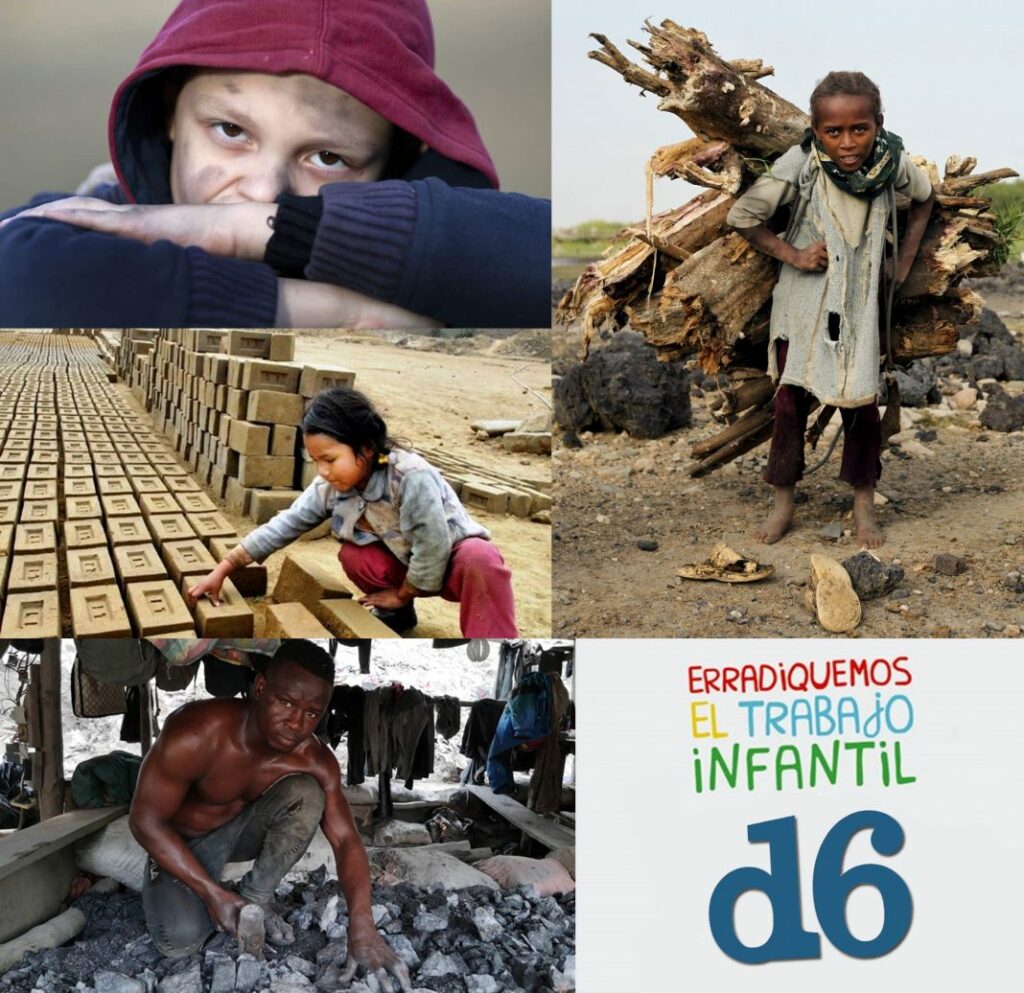Esta entrada también está disponible en: Aragonés Català Español Français English
I IGNORE HOMEWORK, OR… DON’T I?
Where did I get so much enthusiasm for going to class?
The other day I met my new classmate and I was flabbergasted when she started asking me frantically about all the things she saw in the classroom: What are those cards? Can you use those markers? What does it say on the blackboard? Do you know what those letters mean?
I like to see my friends in class, but I’m fed up with homework and exercises and I couldn’t explain so much excitement. Didn’t he realise that what he was putting on the board was going to translate sooner or later into endless maths exercises and an assignment for the weekend?
So I asked her: “But why are you so excited? And I could never have imagined what he would answer: “It’s just that I’ve never been to class before”.
At first I thought it was so cool, not going to school, so cool! Spending the day with the Nintendo or the Play. Or even better, being in the park with your classmates and playing games, going to the shopping centre or the amusement park. And best of all: no homework!
Every second that passed I understood her less and less and I asked her how could it be that she felt like going to school, wouldn’t she rather stay at home playing Play or watching TV?
And suddenly, when she answered me, I understood everything: “I just couldn’t, I had to go to work”.
Florencia had had to work from a very young age to help her family. She then told me that there are children who are forced to work from the age of five and that she had had to work in the tobacco fields when she was eight years old.
Suddenly, when I heard her explaining this to me, I felt like doing my homework and getting good grades, and I started answering all her questions enthusiastically and telling her about what we used to do in class. Playing console games all day may be tempting, but if the alternative is working in the tobacco fields, I’m starting to feel lucky to have to study at the weekend.
Do you know how many children in the world work as if they were adults? Find out below and see what initiatives exist to eradicate it.
Description
Today, 160 million children (ten percent of the world’s child population) are working as adults. They usually do so in a situation of absolute precariousness, with undignified health and safety conditions, enduring exhausting and inhuman working hours… instead of being trained as citizens, receiving an education that will help them face the future.
This World Day raises the alarm about a situation of absolute injustice that reflects extreme vulnerability. There is a need for decisive investment in social protection schemes, but also for global and comprehensive policies to neutralise the inequality and poverty that are at the root of this problem.
Further information
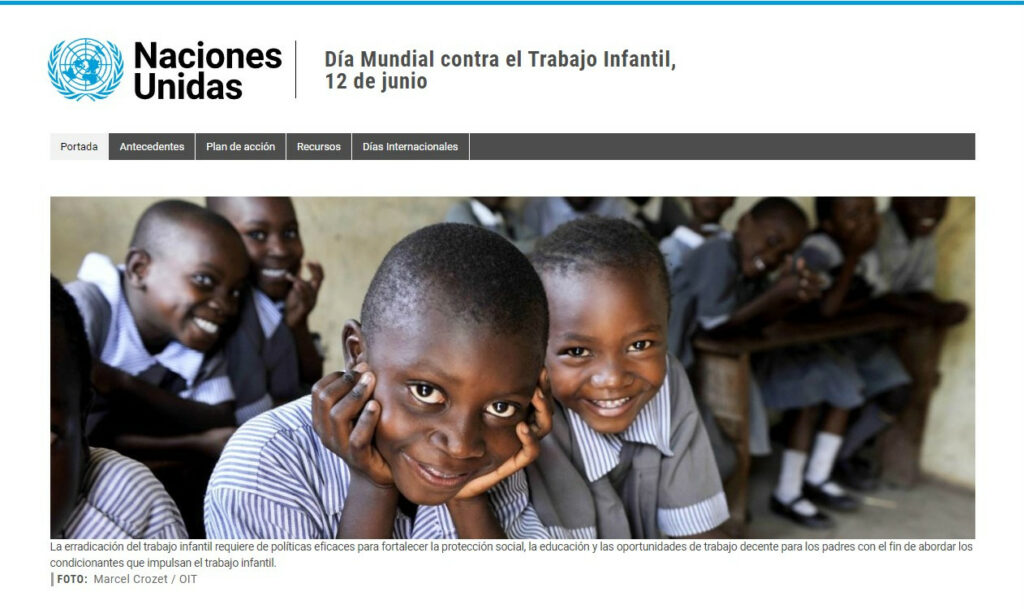
The objectives and contents of this proposal have many connections with other commemorations. The most obvious are Universal Children’s Day (20 November) and Human Rights Day (10 December), but it is also oriented towards values linked to International Literacy Day (8 September), International Day for the Eradication of Poverty (17 October), International Day of Education (24 January), and International Workers’ Day (1 May).
In Aragon…
The Child and Adolescent Care Service, integrated in the Aragonese Institute of Social Services, is the body of the Administration of our autonomous community responsible for declaring situations of risk and neglect of minors, determining protective measures to be established in each case and promoting prevention and reintegration strategies. Law 12/2001, of July 2, on Childhood and Adolescence in Aragon, based on the Spanish Constitution and other conventions, establishes a general regulatory framework that guarantees the children and adolescents in Aragon the exercise and development of their legal rights to which they are legally entitled. They are considered active subjects of rights and unique individuals who are the protagonists of their own history: they are not the property of anyone and cannot be discriminated against on the basis of sex, age, condition, language, religion, ethnicity, socio-economic characteristics of their parents or family, or for any other circumstance. Children and adolescents have the right to protection that guarantees their integral development as persons within a family if possible, but protection is a matter for everyone.
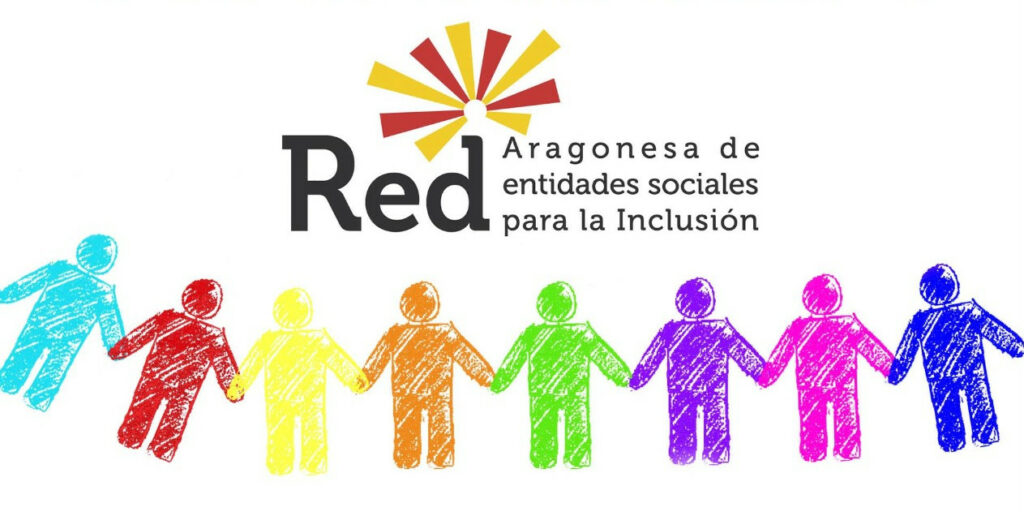
In our autonomous community, 51 organizations constitute the Aragonese Network of Social Entities for Inclusion. The main purpose of all of them is to work actively in favour of the citizens of Aragon through social inclusion programmes for the benefit of the most disadvantaged groups (children and poverty fall into this category). At the same time, other entities that work at a global level on a more specific level in relation to children, such as Unicef, have a delegation in Aragon.
A detail
In May 2022, the 5th World Conference on the Elimination of Child Labour was held in the South African city of Durban, where a Call to Action was issued, representing an international commitment to the elimination of this problem. Very detailed information is available on the website of the Education International (EI) website.
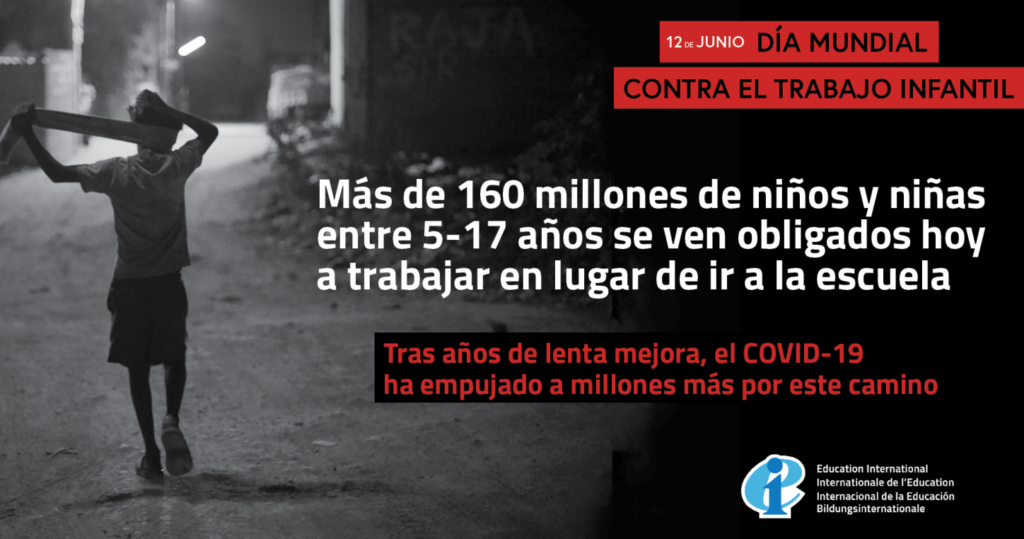
A reflection
All children have the right to health, education and protection. In our developed world, the reality of child neglect seems to be confined to very marginalised environments that are nevertheless covered. But in other places plagued by endemic poverty, war and so on, child exploitation remains widespread. Although in recent years there has been a positive dynamic, reducing these figures… more recently, the various global crises (health, economic, war, etc.) have reversed this trend, exacerbating the problem. Millions of minors see how their opportunities for personal growth are reduced because of the country, gender or circumstances in which they were born.
Suggestions for teachers
This issue directly affects the same age group as the pupils themselves. This can make it easier to bring the problem of child labour into the classroom, encouraging reflection and a responsible search for alternatives and solutions.
A simple introduction to the issue, in a short clip from the International Labour Organization: 100 years, 100 voices. Child labour in the first person
A great deal of teaching material is available on the Education International website (manuals and resources, many of them in collaboration with the International Programme for the Elimination of Child Labour of the International Labour Organization). For example: Trade Unions and Child Labour . A tool for action, among many others, which can be accessed through keywords (such as “child labour”) in the search for the EI website.
Looking further into intergenerational relations, similar to some of the issues raised on other dates, students can be encouraged to find out from their homes, from their elders… especially from grandparents, what their upbringing was like, if they had to work as children, at what age…
Among the different resources available online, the following can be discussed:
- Child labour in the world, in facts and graphs (in Spanish)
- Article: The facts on child labour in the world (in Spanish)
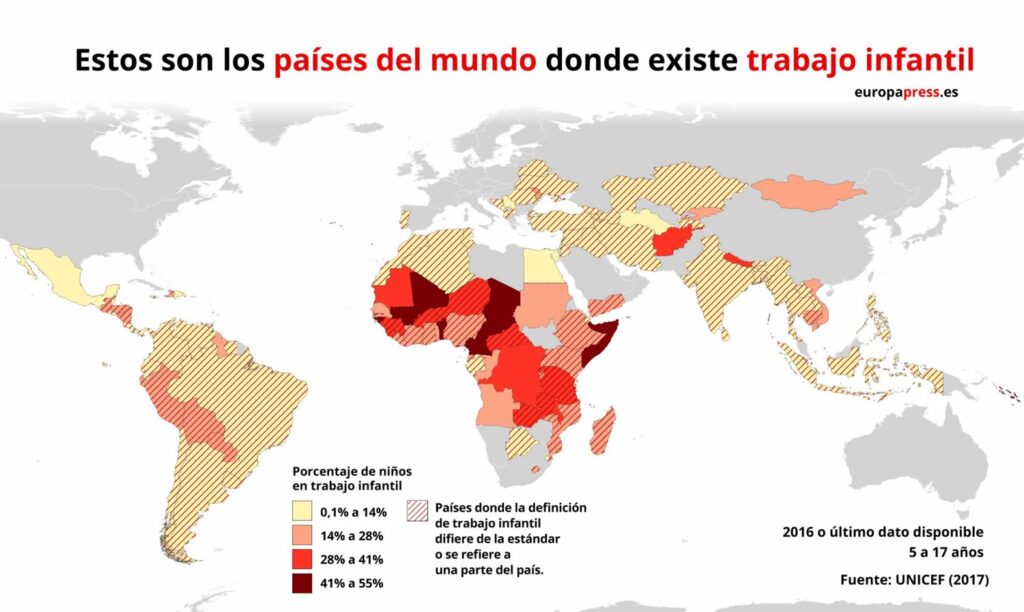
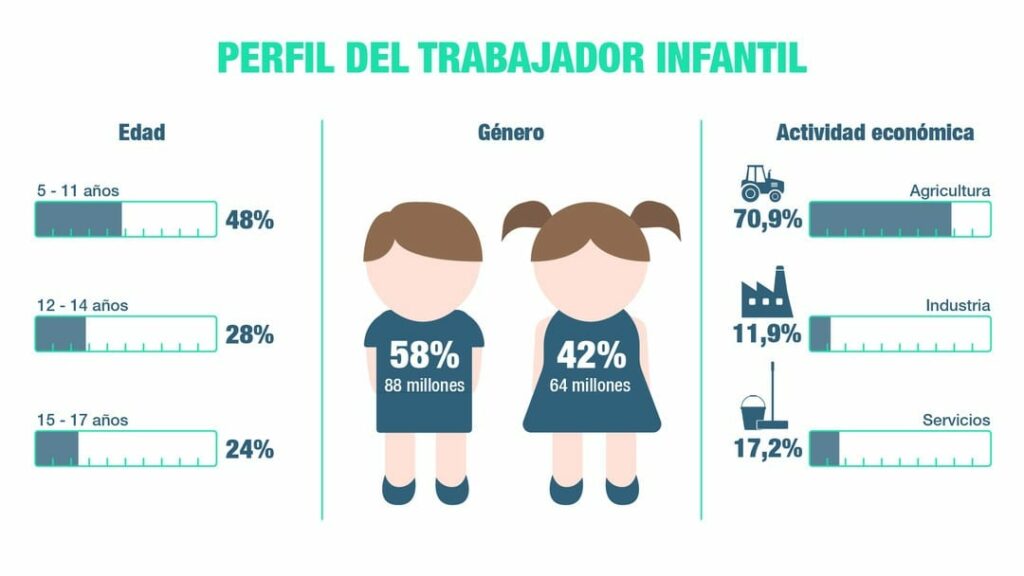
Concepts of responsible consumption can also be introduced: perhaps some of the products we consume have had child workers in Third World countries in the process.
This proposal has a cross-cutting nature in the curriculum. It helps to develop values that promote the values inherent in the principle of equal treatment and non-discrimination on the basis of any personal or social condition or circumstance, incorporating elements related to the risks of exploitation and abuse.
Objectives that this proposal helps to meet
ESO:
- To assume their duties responsibly, to know and exercise their rights in respect for others, to practice tolerance, cooperation and solidarity among individuals and groups, to exercise in dialogue, strengthening human rights and equal treatment and opportunities between women and men, as common values of a plural society, and to prepare for the exercise of democratic citizenship.
- To strengthen their affective capacities in all areas of their personality and in their relationships with others, as well as to reject violence, prejudice of any kind, sexist behaviour and to resolve conflicts peacefully.
Baccalaureate:
- To exercise democratic citizenship, from a global perspective, and acquire a responsible civic conscience, inspired by the values of the Spanish Constitution, as well as by human rights, which fosters co-responsibility in the construction of a fair and just society.
- Consolidate personal and social maturity that allows them to act responsibly and autonomously and develop their critical spirit. To foresee and resolve personal, family and social conflicts peacefully.
- To promote effective equality of rights and opportunities between men and women, to analyse and critically assess existing inequalities and discrimination, in particular violence against women, and to promote real equality and non-discrimination of people for any personal or social condition or circumstance, with special attention to people with disabilities.
- To know and critically assess the realities of the contemporary world, its historical background and the main factors of its evolution. Participate in a supportive way in the development and improvement of their social environment.
Subjects with which it can be linked
- Ethical values (ESO, 1st and 2nd cycles)
- Education for citizenship and human rights (ESO, 2nd cycle)
- Baccalaureate: To be assigned according to modality
Development of competences
- Social and civic competences

